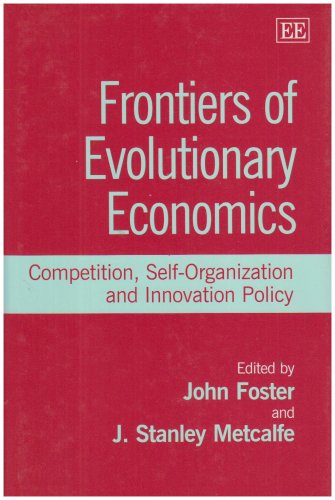

Most ebook files are in PDF format, so you can easily read them using various software such as Foxit Reader or directly on the Google Chrome browser.
Some ebook files are released by publishers in other formats such as .awz, .mobi, .epub, .fb2, etc. You may need to install specific software to read these formats on mobile/PC, such as Calibre.
Please read the tutorial at this link: https://ebookbell.com/faq
We offer FREE conversion to the popular formats you request; however, this may take some time. Therefore, right after payment, please email us, and we will try to provide the service as quickly as possible.
For some exceptional file formats or broken links (if any), please refrain from opening any disputes. Instead, email us first, and we will try to assist within a maximum of 6 hours.
EbookBell Team

0.0
0 reviewsBy moving away from traditional concerns with the operation of selection mechanisms towards a preoccupation with the manner in which the novelty and variety provide fuel for such mechanisms, the authors identify a key development in the field. Evolutionary economists have been drawn into the modern complexity science literature which attempts to provide an understanding of how and why ‘complex adaptive systems’ engage in processes of self-organization. The goal is to provide an integrated analysis of both selection and self-organization that is uniquely economic in orientation. After a brief overview of the many key achievements and continuing challenges, the first part of the book deals with theoretical perspectives, discussing institutional change, social constructions, complexity, selection and self-selection and the usefulness of theory. Part two deals with empirical perspectives and includes discussion of replicator dynamics, the measurement of heterogeneity and complexity, and modeling organizations as complex adaptive systems.
This unique book will appeal to evolutionary and industrial economists and policymakers involved with issues of innovation and management scientists.